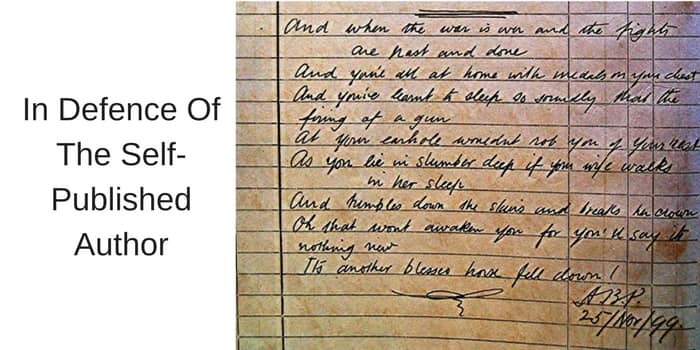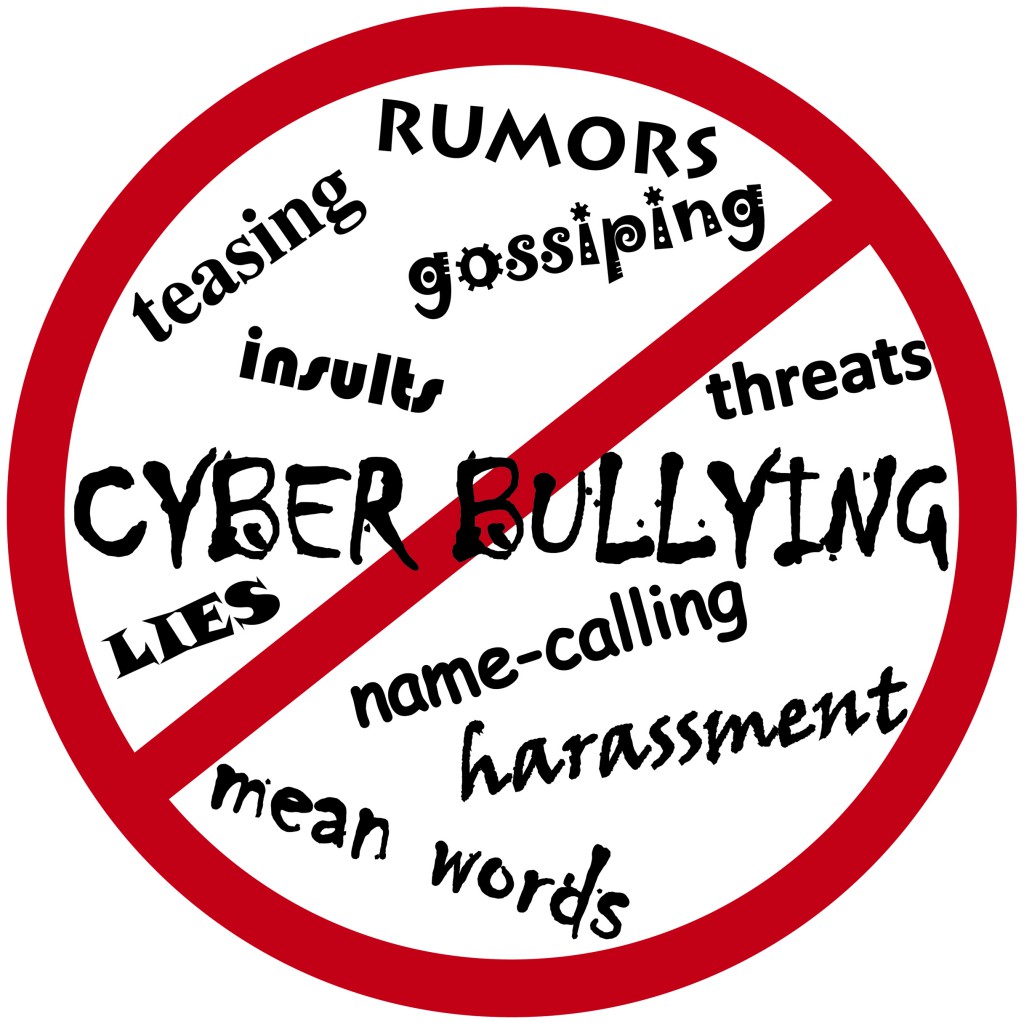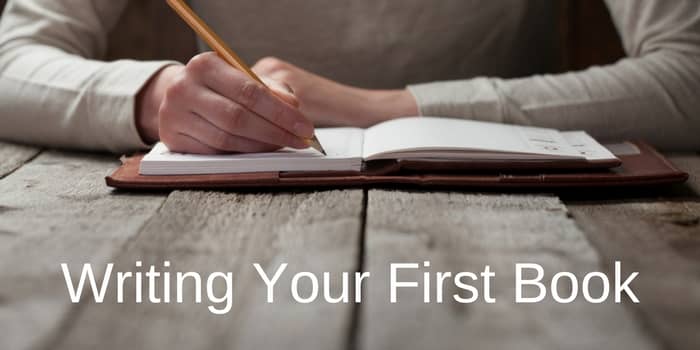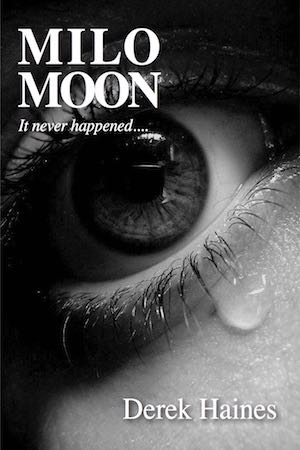
The Self-Published Author and ‘Banjo’
While reading the following poem, which has always been a favourite of mine, I couldn’t help but think of the similarity with the current debate and divide over self-published books compared with traditionally published titles. It has become a bit city and the bush – New York and London against the world one might say. While many are beset on comparing the incorrect use of the Oxford comma in self-published titles, I really think they are missing the whole point.
Self-publishing is about stories, wonderful and never before published stories from the hearts and minds of passionate people. Rugged yes. But a rugged beauty that, like Mr Lawson, many just can’t see for looking.
In Defence Of The Bush by A.B. “Banjo” Paterson
So you’re back from up the country, Mister Lawson, where you went,
And you’re cursing all the business in a bitter discontent;
Well, we grieve to disappoint you, and it makes us sad to hear
That it wasn’t cool and shady — and there wasn’t plenty beer,
And the loony bullock snorted when you first came into view;
Well, you know it’s not so often that he sees a swell like you;
And the roads were hot and dusty, and the plains were burnt and brown,
And no doubt you’re better suited drinking lemon-squash in town.
Continue reading this classic poem here.
As a boy from the bush myself, I have to admit to being a little tired of the Manhattan ‘city slicker‘ line that sings to an all too very familiar tune. ‘This writer really needs an editor.’ Sure, but hey, where’s even a little mention about the story? Did you notice that at all while you were spotting the incorrect use of the ‘Oxford comma’?
Just as Patterson and Lawson debated in poetry over one hundred years ago, there is beauty in many things, but only if you want to look for it. If you are always wearing blinkers, you’ll never see it, though.
A vast majority of self-published authors share their stories with the world for little financial reward. According to the Taleist Self–Publishing Survey, 50% of self-published authors earned under $500 in 2011 from their books, and 10% of those surveyed authors earned over 75% of the total revenue. As this survey was conducted using data from just 1,007 authors who volunteered their earnings information, I would venture to conclude that there are many more self-published authors who earn less than $500 per year from book sales.
Many, if not all of these authors would love to be able to afford the services of a professional editor, cover designer, marketing manager and perhaps even a tea lady. But on earnings of less than $500 per year, the notion is ridiculous unless some New York and London editors have suddenly become philanthropic and are willing to provide their services at an affordable ‘bush’ price.
So, while those who criticise misunderstand and apply their expensive city logic to the paltry income of the self-published author from the bush, they may want to consider what almost every self-published author has achieved, for very little reward.
- In excess of 3,000 titles are available every day for free on the Kindle Store alone. Plenty of choice for those who love to read, or find fault (for free).
- Ebook prices have fallen due to the competition created by self-published titles.
- No one went near erotic romance until self-publishing was bold enough to do so. Traditional publishing has become a follower and is now cashing in on a genre they wouldn’t have touched just a couple of years ago.
- Electronic readers such as Kindle owe their popularity and sales to the huge choice of cheap and free content provided by self-published authors and not to the lack of enthusiasm shown by traditional publishers, who initially fought the change to e-reading.
- Self publishing has made it easy for traditional publishers to find new and marketable authors to add to their stables, and with little risk, as they pick and choose the cream of indie authors.
Yes, it’s easy to criticise and compare the city with the bush, but perhaps it’s time to congratulate every self-published author for rekindled the love of reading with their passion for writing and their willingness to accept little financial reward in return. If you can’t see this aspect, then please stay away from reading any self-published books in future; particularly when they have been obtained for free, and go back to paying a New York or London publisher to read Jane Austen or Victor Hugo again.




Ya-hey!
You don’t have to be Aussie, mate, to agree with this one, but it’s doubly enjoyable if you are. I have lived and worked and written in Australia for well over a quarter of a century, and find that only now are things being blasted open to let independent authors like me through. As they say, the only way out of something is through it, and I have been through and through this business, enjoying about 80% of what I do, and the last two years have been pretty darn good.
I am not only independent, but international – you don’t have to be Aussie to enjoy what I write, but it’s doubly enjoyable if you are.
Thanks for your comments Rosanne. I think self publishing suits Australians in particular as it gives us the chance to cut down a few tall poppies, and give a bit of a finger to the establishment. :)
Congrats on enjoying what you do Roseanne. Its a big part of being an Indy Publisher. In the cold hard world of big book sellers and publishers where substandard books by popular personalities written by ghostwriters thrive, little known writers with limited money to spend on refining their work scarecely stand a chance. Rejections such as the one discussed are just the final phase that started with returning or dumping manuscripsts. Indy publishing has a while to run yet because the power to publish and market is now in every writer’s hand for a lot less and we will follow even what seems a mere dream and vanity because it is more real than sending unsolicited manuscripts to publishers who overlook our work just because no one knows our name. Once we have prevailed ‘Struggling Writers’ just need to be more supportive of each other in these shark infested waters instead of becoming like the big booksellers and publishers we criticize. While there is a lot of substandard work put out by Indy Publishers, a notable shift in the power structure of publishing has already happened. Some of what we now see is theb reaction of some who feel economically threatened.
Far too many criticise. Far too many are quick to find fault, particularly those who feel the need to boost their own ego’s on far too many internet sites. As for the trolls…
Oh Jack, what would the trolls make of The Man From Ironbark? lol
“And you’re cursing all the business in a bitter discontent;” the poem goes, but you’re enjoying it too! I don’t think I’ve ever had such a great time with my writing in my life. I sometimes feel despondent, but only about 10% of the time, which is pretty good innings.
Another great article Derek. I have recently inadvertently fallen into a role as an Indy Publisher. I had started out publishing my own work and then began formatting for my friend, John Reeves. Lately I have been in demand as a publisher by people from Hollywood to New York who are just fed up with traditional publishing. I publish both ebooks and POD. My rates are low and everyone has been delighted that they could actually order paperbacks of their book in a week or so as opposed to six months or more at a far greater cost to them. My most recent publication was featured in the L.A. Times and on channel 9 L.A. POD is a godsend for many authors.
Hi Derek, It’s good to read your posts about indie writing. The passion in your voice always comes through.
BUT, at the risk of putting my toe into shark-infested waters here, I would have to say that many of the self-published eBooks that I have read have scrambled, badly constructed storylines. What these books lack is the services of a structural editor – nothing to do with the grammar police.
I couldn’t agree more JJ. However, the investment necessary for even a modestly priced editor is out of the financial means of most self publishing authors. And by this I mean a qualified editor, not one the hundreds of writers who are advertising their services on social media and trying to make an extra buck by calling themselves editors.
I would love to be able to afford a good editor myself, but on my sales revenue it’s just not a reality.
Let me play Devil’s advocate here and offer an analogy. A small, independently-owned restaurant opens down the street. The sign looks a bit colorless and simplistic but that’s just a sign — can’t use that to form a judgement. You stop in for dinner and the first thing you notice perusing the menu is that the price is pretty reasonable, perhaps half what you pay when you typically go out. You order a pepper-grilled steak (spelled “stake” but you know what they mean, so you let it go).
The food shows up on a paper plate, and you are given plastic silverware. After a moments struggle to cut the meat with the dull knife, you take your first bite. It is tough and all you can taste is black pepper. You dive into the mashed potatoes and find that they are cold.
The server, who is also the owner since it’s a small business, comes over and asks how you like your meal. You are honest. The owner explains that he really has a passion for the restaurant business but doesn’t have any money to hire a chef so his wife and best friend are in the back giving them a hand even though they have no practical experience in the business.
Do you return to this restaurant just because the owner has a passion? Or do you think twice the next time you pass by any small, independently-owned restaurant?
Love your craft, but don’t forget that you still have customers to serve, and if that service is bad, then they might not return. And if you know that your service is bad, certainly don’t get upset with the customer for pointing it out.
Well said!
In all of this debate I haven’t seen a lot of mention of errors in traditionally published books and yet I do see errors (a well know author had one of her characters in two places at the same time) and wonder where the editor was before publication.
It seems to be something that is ‘unmentionable’ Darlene, but traditional publishing find the same difficulties in e-publishing as Indies. I bought a literary classic for $7.99 recently to read for my book club and it was a formatting disaster. So many different font styles, gaps, changes in paragraph style and a mess when it came to dialogue formatting. I couldn’t read it! Clearly it had been rushed to publish without any html work at all.
True, errors exist in some traditionally published works. But there used to be a day when I could pull a book off the shelf at the store and be pretty sure that it was edited well. I knew without really thinking about it that the publisher had someone give the book a little scrub. I often bought books just based on the cover and the dust jacket copy. There was always a risk that I might not like the story or author’s style, but in most cases I got basically what I expected. With e-books, it’s become a requirement to read a full chapter or more of the sample just to see if the author/publisher completely did the job. That should’t be the norm.
You admit that you struggled reading the poorly formatted book. Traditionally published or self-published, I don’t think that readers care where the book originated. What they care about is that they enjoy the read. As you’ve said, lots of errors distract from that enjoyment. I’m not trying to be a troll here, but why should the reader be asked to accept a less enjoyable read just because the author didn’t see the need to prepare the book properly? Self-publishing is a small business, and like any other small business, if you don’t have the funds to start it then you should wait until you have found a way to gather those funds. It’s expected in any other small business, why not self-publishing?
Thanks for the great post Derek! You’re completely right. It is so frustrating when indie books are compared to NY published books. NY books are produced with a huge amount of money behind them and worked on by editors who are at the top of their game. In turn, they are priced at the top end of the market. Indies are produced with MUCH smaller budgets and are priced as such.
I recently read a blog by Amanda Hocking where she said that one of her reasons for taking a traditional contract was because no matter how hard she worked, the editing would never be good enough in her self-pubbed novels. I can see her point.
It is unfair to line up a product that is produced with a huge backing against something that has had everything the author can afford thrown at it – which probably isn’t that much!
Hi Marissa, whilst i only have print books, i do see the issue with cost and expectation, on the other side of the coin, the indie books started the boycott on 9.99 limit because they sell for .99 cents to $5 average, the publishers and even indies who did spend vast amounts of money are now being punished because you work is sold cheaper.
If you object to the comparison then you must say that the book is worth less than the expensive book, if you think it is worth the same in sales then you must cop the criticism.
I believe an ebook is worth ten dollars less than the paper version, now remember they are already saving around $10 postage on top of that, so a $21.95 book plus postage at $11.95 is a bloody bargain, the 10 dollar less is not because of lack of paper, that is only $2 for a large publisher, is is because you cannot sell it or lend it traditionally. for those that bitch about that. go and ask for the cinema film roll the next time you go to the movies and see how far you get. The movies are a convenience as are eBooks and there is no hard copy.
I will never sell .99c ebooks, i think it is an insult to real writers and destroys the industry and employment so 25 million people can write books and make 500 each per year with a handful of success stories to justify destroying an existing industry..
But hey, that’s just me, i have over 700 DVD’s none burnt. I’ll bet most people would complain if their day job was destroyed by Chinese opening next door at one tenth of the price, and listen to the time honored line used by every person now a victim of their own style of crime “it’s not the same thing” it bloody well is!
Thank you for your insightful comment Marissa. I think it goes for all self published authors that none of us would pass up the opportunity to have our books edited professionally if we were presented with the opportunity. Unfortunately, it doesn’t come for free and Amanda Hocking’s good fortune doesn’t arrive for every writer. But that we do our best on very limited resources is good enough for me. It’s unfortunate that it’s not so for some who fail to understand this and continue to unfairly compare.
I love the food analogy being an ex chef many many years ago, I often use it to show people what qualifications on paper are worth if 9 out of ten restaurants are crap or no better than home cooking, remembering they all hold the same piece of paper called “qualifications” a lesson in seeking any staff or contractor.
as for the remark about the character in two places, (likely something i would do) I don’t find that an issue at all, there is not one great film that does not have the same errors, i mean not one. I have this logic processor for a brain that just finds them all. Minority report with Tom Cruise is an easy example, when explaining the psychics can only see murders, they later go on to show an add on tv with people saying how they were saved by the pre crime police, one says she was going to be raped. Falling Skies, sure if you can super human strength after being harnessed you could climb the side of a building with you fingertips, but not walk up walls in sneakers or along a flat ceiling..
I go to extremes in science to be not only accurate but give examples in our everyday world of the same thing, which is why i had to design a new dragon from scratch. Most errors are not really errors per say, such as the falling skies example, they are just not possible. EG: sit on the bonnet of a car doing just 50mph and spit, you know even without doing it what will happen yet, until my dragon, no one ever said you can fly and breathe fire straight ahead, the result is the same, we even tried it with a high pressure sprayer and the result was the same, the atmosphere around you is about 35PSI now consider that without movement is the pressure in a car tyre. Though i do consider the two paces thing a real stuff up. my first print spelled Nicholson wrong, i missed it, the editor missed it and so did the spell checker. then when the doc was re opened, there it was.
I have yet to go to ebook publishing as Australia has no selling platform we can use, as amazon and Ibook will not let Australians sell. they refuse to link to our banks the strongest in the world, yet link to the crap Euro banks, we could publish basic ebooks but they can all be copied without a hacker program. Top left corner outside the doc, click and drag till everything goes blue, minimize to half size and drag onto a word doc, your book is now copied, delete all the Html and your book is being sent everywhere for free. That’s why I won’t use basic eBook programs.
Would I have gone ebook first if it were available on kindle in Australia? probably not. yes i know rolling cigarettes from the butts in the ashtray, to make sure the illustrators and editors can get paid seems extreme, but hey, they are in libraries now and create an immortality that exists that will never exist in ebooks, if a solar flare took out all our power tomorrow, the print will live on. and i have to say the look on peoples face when they take hold of the book, is unique to the printed book, as is finding one under your Christmas tree.
Perhaps we have all come too far, that we have lost that which is the magic itself, believing style more important than content:
Formatting? style? who would belittle that which was scribed well, but with a thumbnail dipped in tar?
I must be tarred with the same brush AC. Would you believe Amazon Kindle, both US and UK won’t permit electronic royalty payments into my Swiss bank account?! I can get this from Amazon Germany Spain, Italy and France, but as they don’t tend to read in English a lot in these lovely countries, it seems a little pointless. Maybe being Aussie and Swiss has condemned me to Amazon electronic payments purgatory. lol Well a cheque each month is better than a poke in the eye with a sharp stick I suppose. Minus clearance fees. :)
By the way, except for one or two novellas, I always publish in print as well. They don’t sell as well, but by doing it I feel more like a writer when I can hold the book in my hand.
“no one ever said you can fly and breathe” see there you go, a mistake in my own post spelling it should have said “can’t”
A.C. If something costs a lot less to produce, then yes, technically the book is worth less. This doesn’t mean the readers will enjoy it any less, but (going back to the food analogy) price-wise, it’s like going to a Macdonalds and expecting the same sort of quality as The Ivy. If I read an indie book (which I do now, nine times out of ten) I will overlook a few typos. However, if I pick up a big name book which I’ve spent best part of £10 for (I’m in the UK) then I don’t expect to see typos. It’s the people who read an indie book, spot a couple of typos and tear the book to shreds on every review site possible who I think are being unfair to compare the two.
I use an editor for all my books, plus I also pay a separate proofreader on top of that. Yet still, a couple of typos in a 90,000 word novel occasionally slip through. It’s frustrating because I’m producing the very best I can on the budget I have (which is more than most indies) yet still there are mistakes. In this way I completely understand Hockings decision to go with one of the big boys.
But yes, I do agree with you on the $0.99 price tag. It has lowered reader’s expectations about what price they think they should pay and no longer works to get sales. While it launched several big name author’s platforms, it has left the rest of us struggling out of the mess. Personally, I don’t sell my novels for any less than $4.99, but I don’t think I’d go much higher than that.